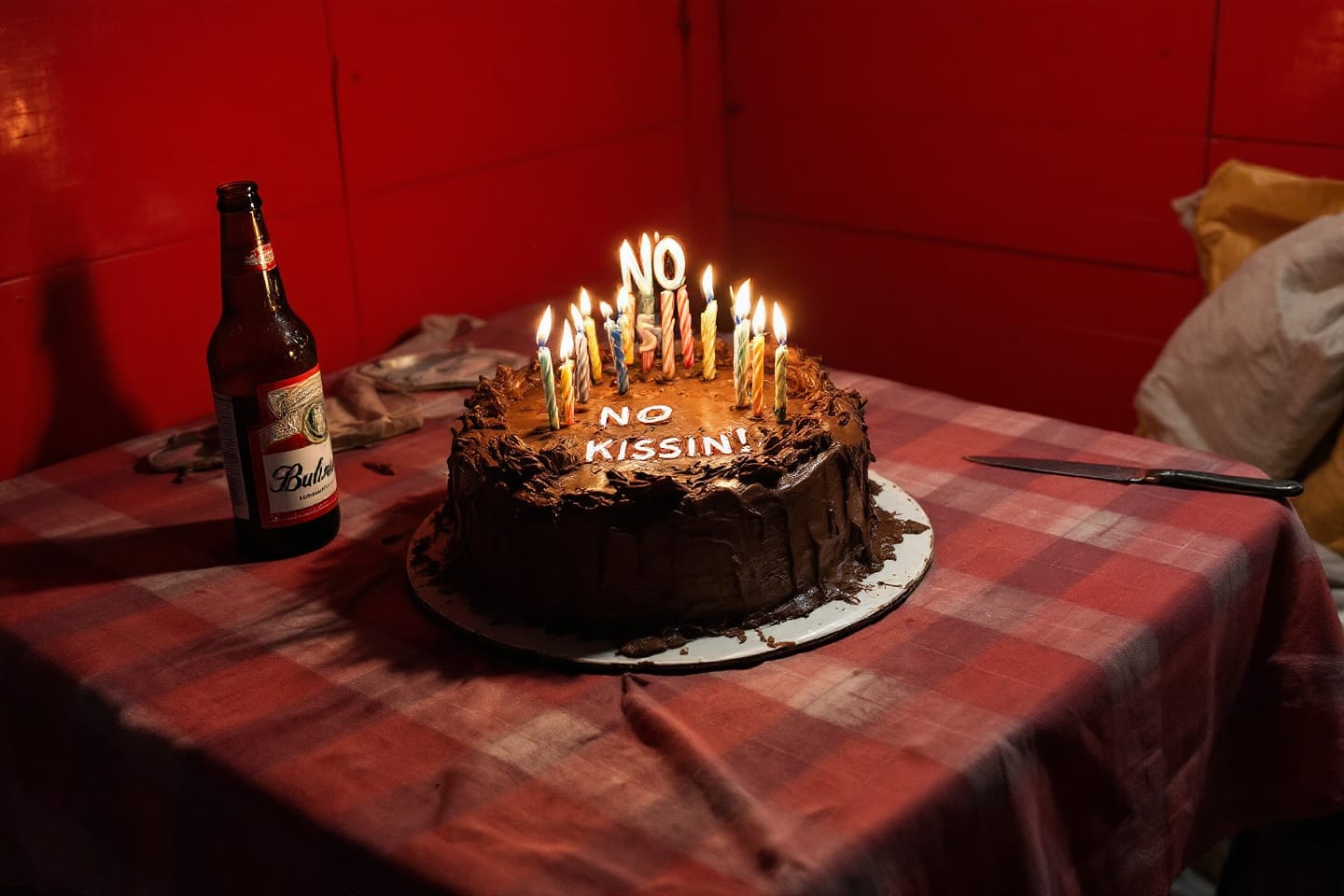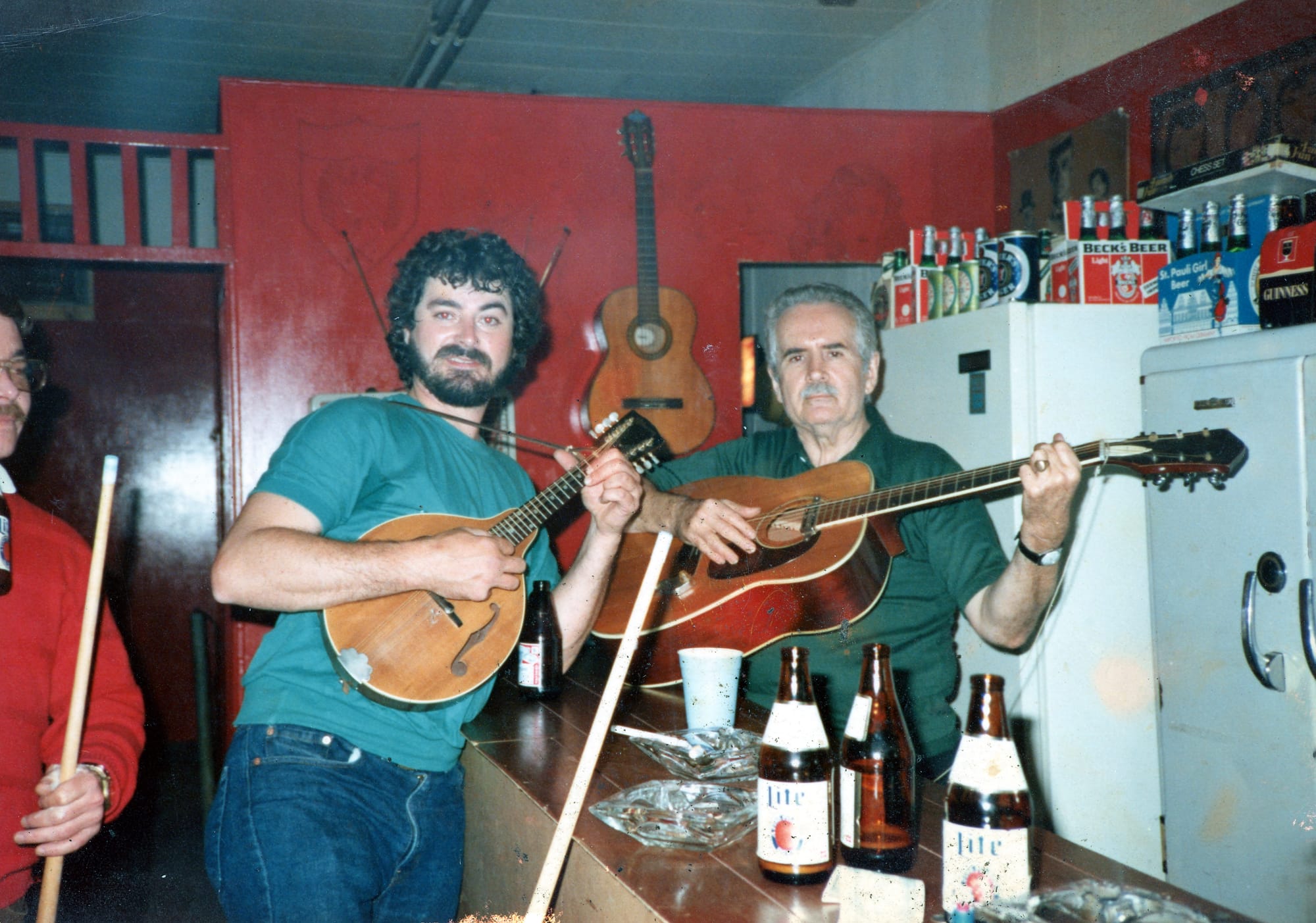IN A TOWN famous for its bar culture, there might be no more influential a local drinking story than the tale of Jim Collins Bar.
For almost 40 years, this one-of-a-kind establishment – part dive bar, part afterparty, part musician’s hangout, but mostly “Jim’s living room,” as it is often described – was the focal point of downtown culture long before the coming of SCAD, of Midnight, of Paula Deen.
“Jim Collins Bar was Jim. It was open six days a week, 52 weeks a year, year after year. One bartender. Jim. One set of rules. Jim’s rules,” laughs Tom Kohler, one of the original members of the local group that calls itself the Jim Collins Bar Alumni Association.
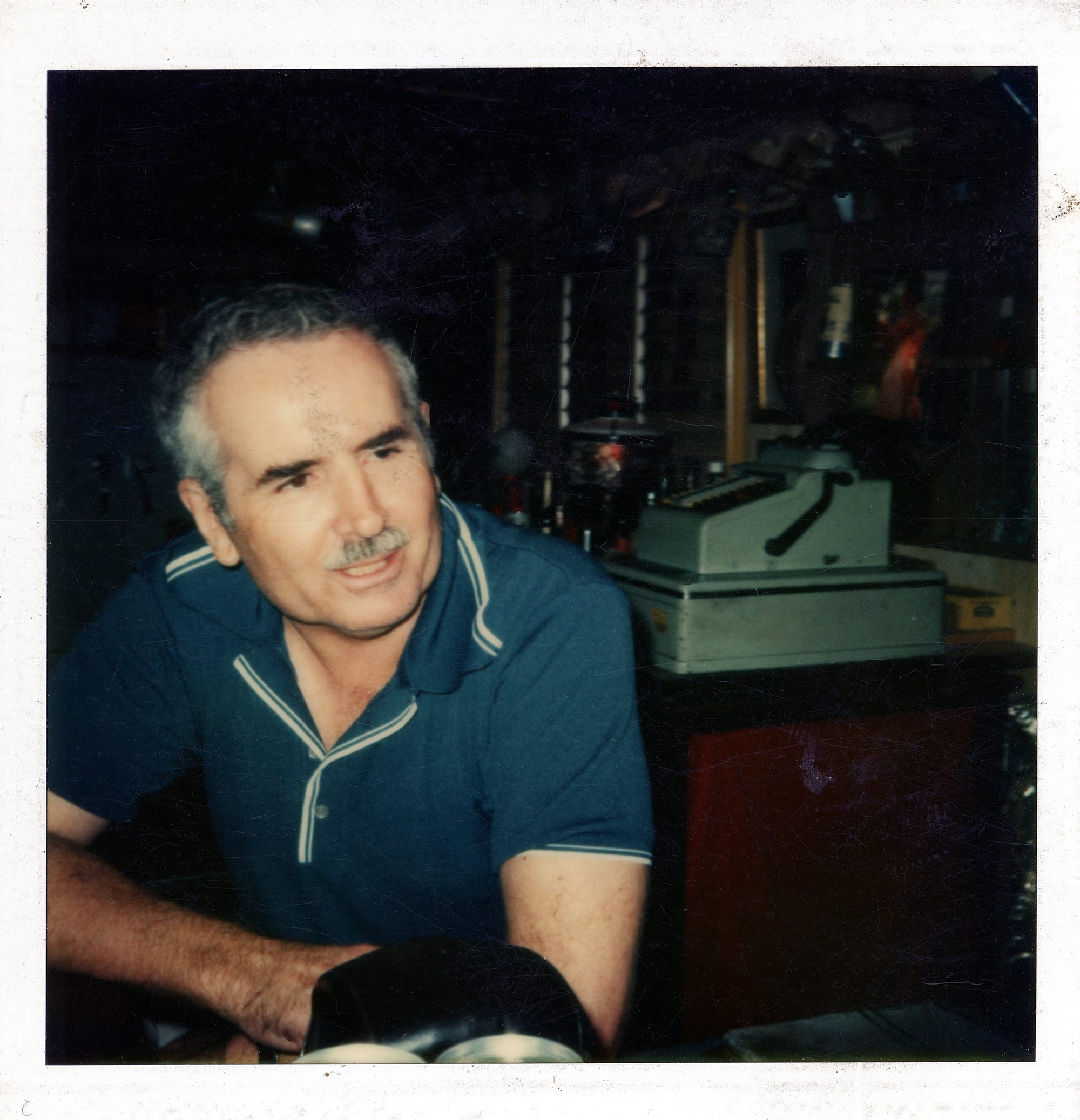
The irascible but fair-minded Collins – “he was an equal opportunity grouch,” jokes Kohler – actually had two different locations of the bar bearing his name.
The first was on 17 Lincoln St., where Abe’s on Lincoln is now.
The second was at 109 Whitaker St., where Tequila’s Town is, right next to El-Rocko Lounge.
Collins passed away in 1989, and the Whitaker Street bar closed for good in 2001. But both locations, in their own ways, deeply influenced different generations of Savannah’s counterculture and creative communities.
A loving celebration of the multigenerational impact of Jim Collins Bar – set on what would have been Jim’s 100th birthday – will be held this Saturday, June 7, at The Sentient Bean Coffeehouse, a place chosen specifically for its own long-term contribution to downtown culture and civic life.
How Jim Collins Bar came to be is a story in and of itself. Jim’s daughter, Kathleen Collins, explains:
“My father was a very independent and stubborn man. After many years of bartending in some of the area’s prominent bars, and running a corner confectionary from 1964 during the day at 17 Lincoln Street, he decided he could create a new bar that was better than the ones he’d worked in,” Kathleen remembers.
“He converted the space, built the bar by hand, and reopened it in 1966. He’d seen what didn’t work, and felt he could do it better.”
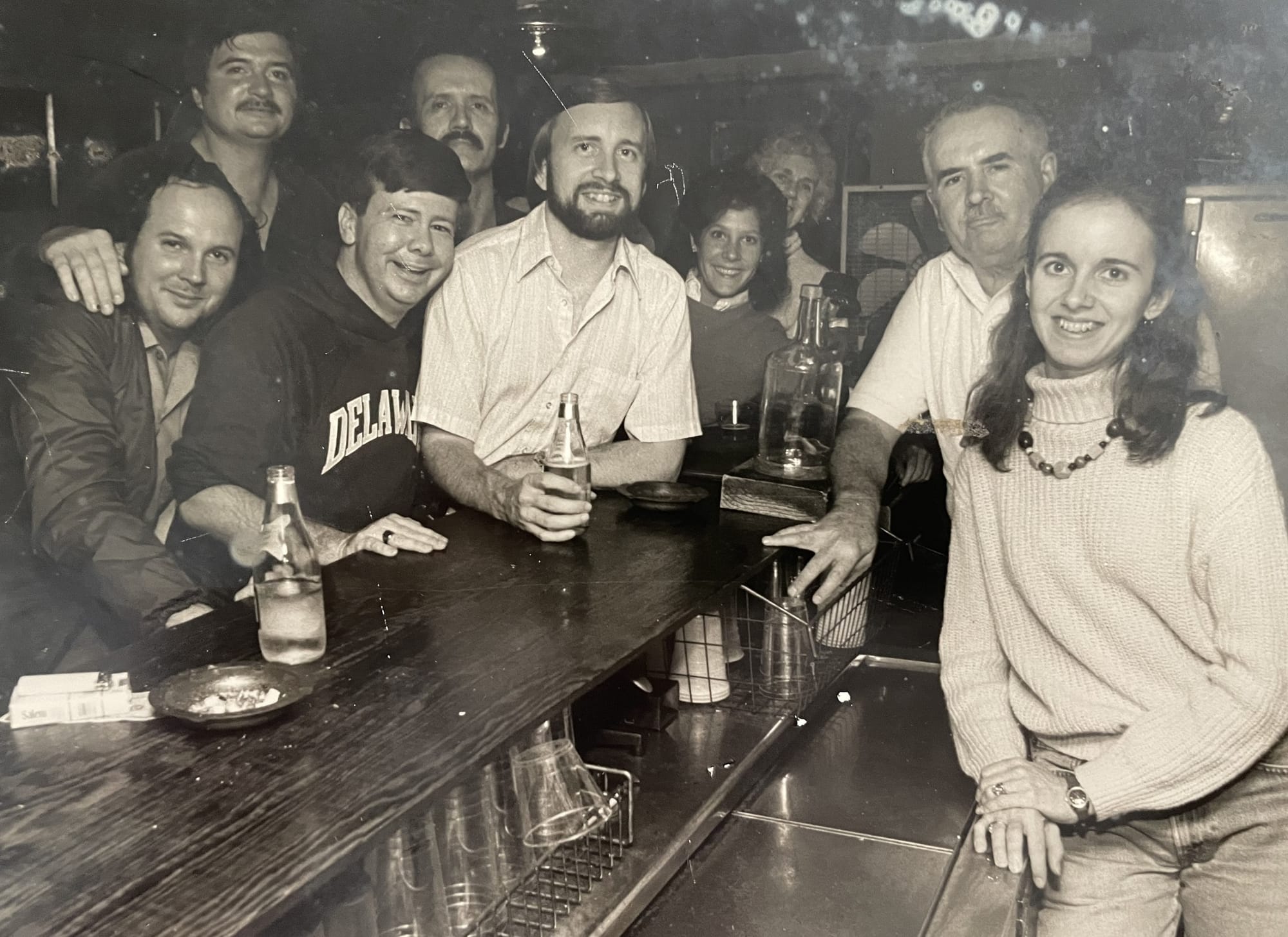
That original Jim Collins Bar on Lincoln Street had just a tiny little sign, Kohler says, and otherwise no one would know what was going on inside.
“You had to know to go. It was, for all practical purposes, ‘by invitation only,’ in that the only way you heard about it was from someone who would invite you to go with them.”
Kohler calls Jim Collins a “true pioneer” of downtown Savannah.
“Back then, downtown Savannah was a really small town inside a larger small town. Almost all downtown nightlife was on River Street. If you weren’t on River Street, or right near it, there wasn’t much to do,” Kohler says.
“For Jim to open a place on Lincoln, even if it was just a block off River Street, was a big deal at the time. And then later, to open a place on Whitaker where he did, south of Broughton? That was also unusual. Jim was a pioneer and a risk-taker.”
Kathleen remembers that she and the rest of her family lived upstairs from the bar – which was quite a learning experience in and of itself.
“Eating dinner at night with my mom, and hearing the jukebox and boisterous clientele, was the norm for me. Sometimes we’d turn the TV down and listen in,” she says.
“I had my 18th birthday in the bar. The drinking age was 18, but he let all of my friends have a drink!”
That said, Jim ran a tight ship. There was no kissing, no dancing, no profanity… and no pennies.
And most unusually for a Savannah bar, beer and wine only. No hard liquor.
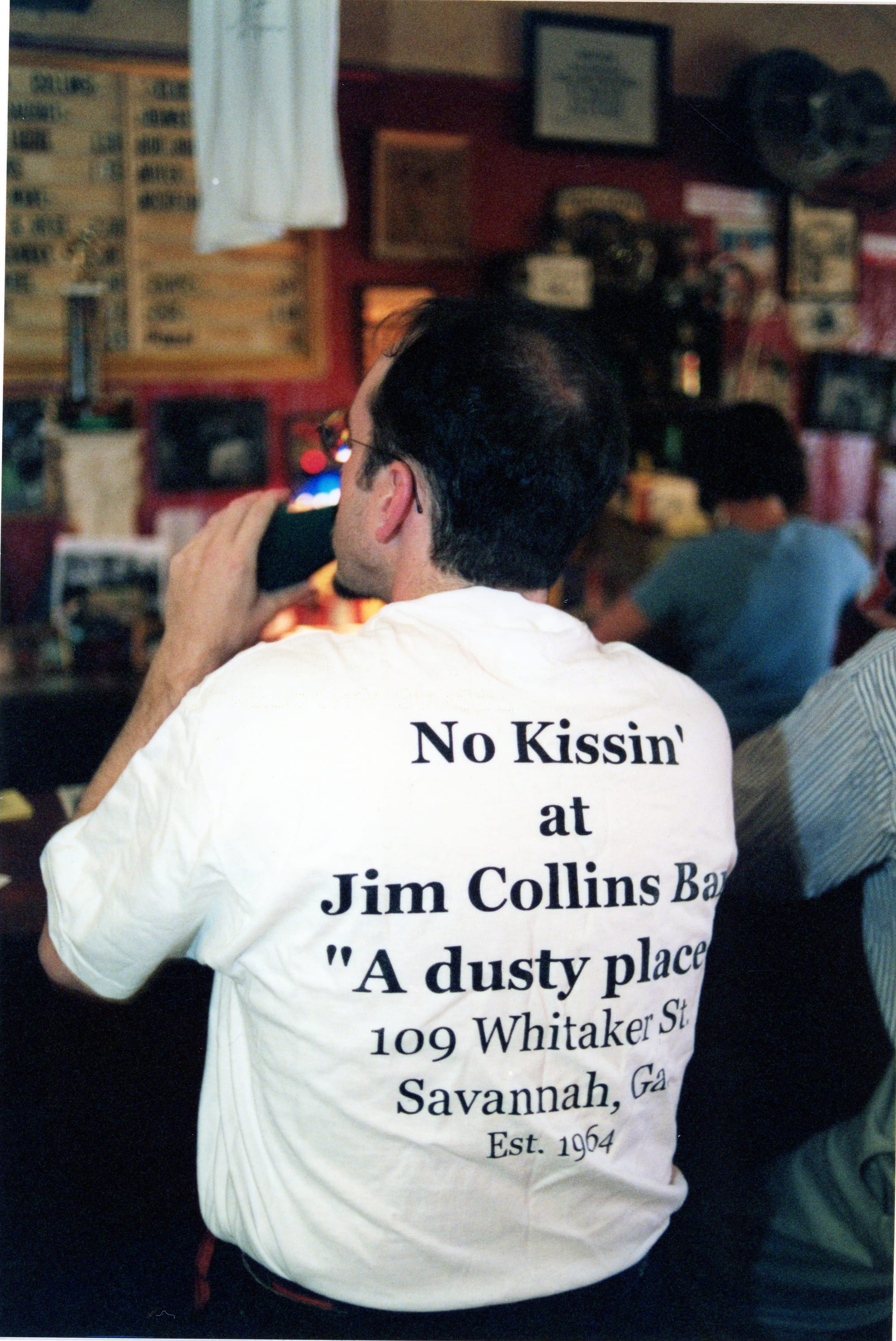
That early incarnation of Jim Collins Bar was deeply influential for an older generation of Savannahians, who lived and worked downtown during a time when it was hollowed out from white flight, long before the big tourism boom that would come later.
Kohler started going to Jim’s when he was attending Armstrong State College (later University, now part of Georgia Southern).
“Back then, your professors would be in there too,” he says.
Kohler was first taken to Jim’s by a fellow student just back from Vietnam.
“We came down a completely abandoned Drayton Street at about 60MPH, literally flying over the humps at some of the cross streets. We opened the door, and a cowbell clanged. The place was empty. A man with a crew cut and white t-shirt appeared behind the bar, and Jay and I jumped on barstools. ‘Jim, this is Tom.’ ‘Tom, this is Jim.’ Jim stuck out his hand and said, ‘Any friend of Jay’s is a friend of mine,’” Kohler remembers.
“I went to Jim’s often five nights a week for the next two years, and every week for decades after that.”
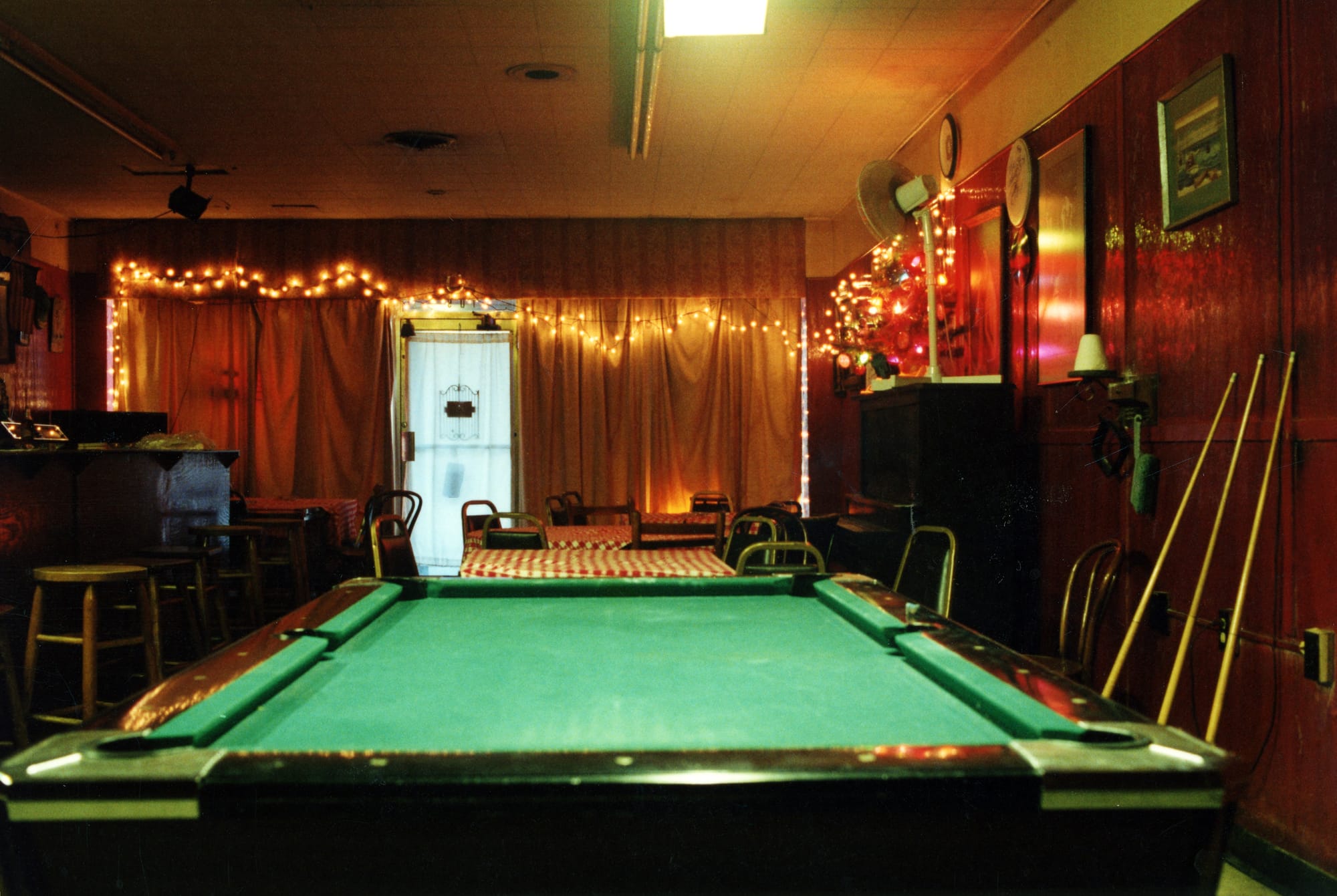
By the early 1980s, Jim moved the bar to the Whitaker Street location.
“There were two different kinds of magic at each place,” Kohler remembers. “That Lincoln Street location was the perfect conversational bar – there was literally nothing else to distract you from conversation. And some nights it might just be you and Jim talking to each other.”
That group of Savannahians now roughly in their fifties had a closer connection to the later location, on Whitaker Street.
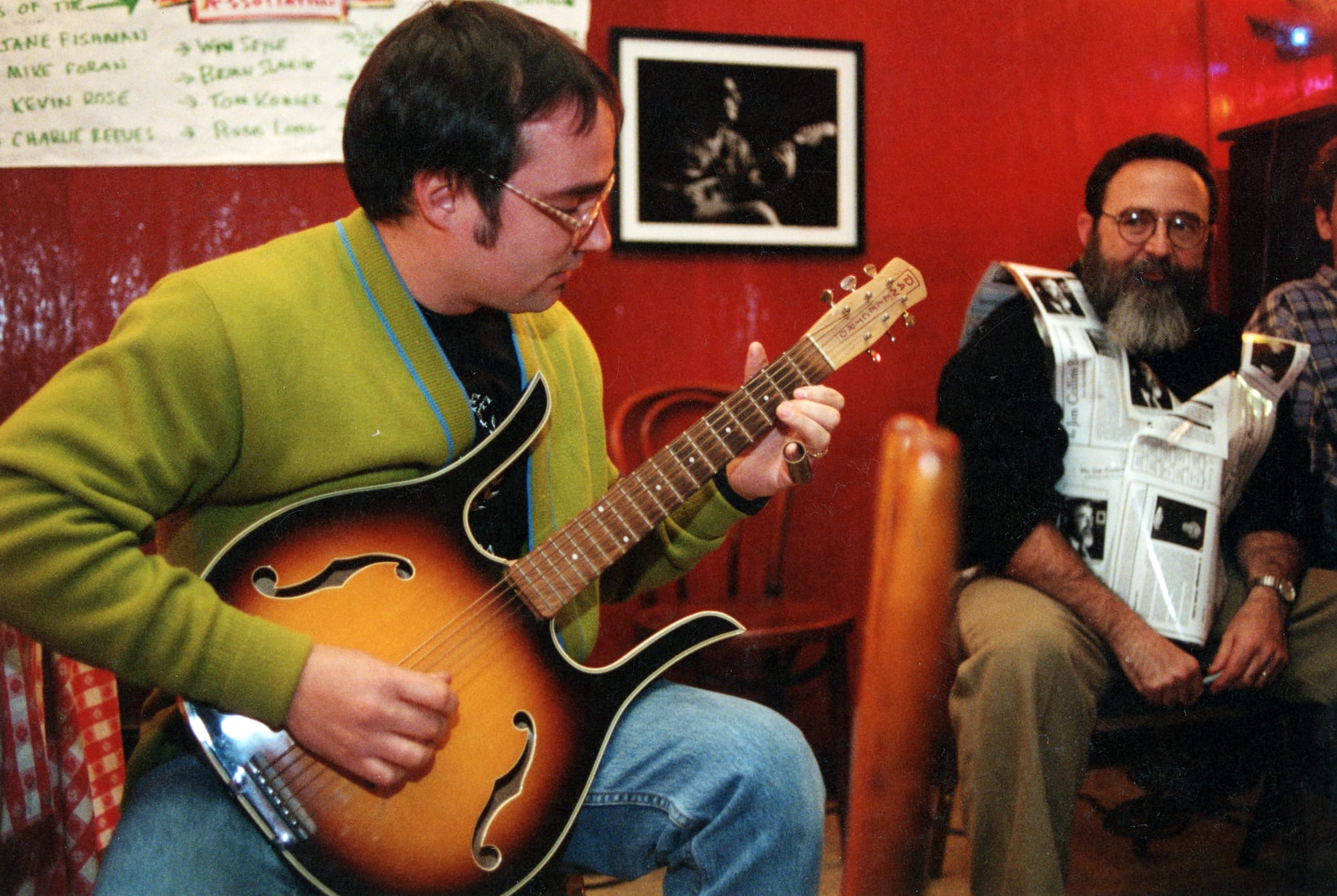
This is especially true of local musicians, for whom Jim Collins Bar was a kind of home away from home, and known far and wide for its legendary jukebox, personally curated by Jim himself.
One such local musician is Jim Reed, who came to Savannah in the fall of 1986 to attend SCAD, back when the school had less than 1000 students
Reed remembers:
“On perhaps my first or second night in the city, I was strolling aimlessly, just trying to investigate this strange new place I called home and see what it had to offer. Back then, on weeknights after five or six in the evening, the Historic Downtown was quite literally a ghost town. Other than on River or Bay Streets, most businesses downtown closed at five, and perhaps thirty to forty percent of all storefronts were empty, abandoned and decaying,” Reed recalls.
Then as he was wandering around on the quiet streets, in the distance Reed heard a scratchy version of Bob Dylan’s “Like A Rolling Stone.”
“It echoed amongst the three and four-story buildings near Abercorn and Oglethorpe Streets, and because it’s a six-minute song, I literally sped up my pace and followed the sound of the record like a beacon, trying to locate its source,” he remembers.
Eventually, Reed found Jim Collins Bar on Whitaker, with its legendary early 1970s jukebox turned up loud just inside its open door.
“I peeked inside and saw that there was only one customer and a bored looking bartender, but did not dare enter, as I was underage. Instead, I hung out on the sidewalk and listened to the scratchy 45 rpm singles for maybe an hour or so,” Reed says.
At some point, the bartender – Jim Collins himself, as always – invited Reed in.
“When I let him know I was not old enough to drink, he smiled and brought me a cup of water to drink on the curb,” Reed says.
That odd interplay went on several times over the next few weeks, “until it became something of a skit that he and I were performing with each other,” Reed says.
“At some point, he insisted I come in and sit at the bar. He acknowledged that I was underage and that it was illegal for me to be in there, but he said that anyone who care about his place enough to just sit on the sidewalk and chat with the customers deserved ‘a seat at the table,’” Reed says
A few visits later, Reed says that Jim “unceremoniously handed me a Budweiser, and said something to the effect of, “If anybody asks, you fooled me with a fake I.D., and it’ll be on both of us.” From that point on, I became a regular at Jim’s, and his taciturn friendship and that of the older regulars there played a huge role in shaping how I viewed Savannah and whatever my role in the city was meant to be.”
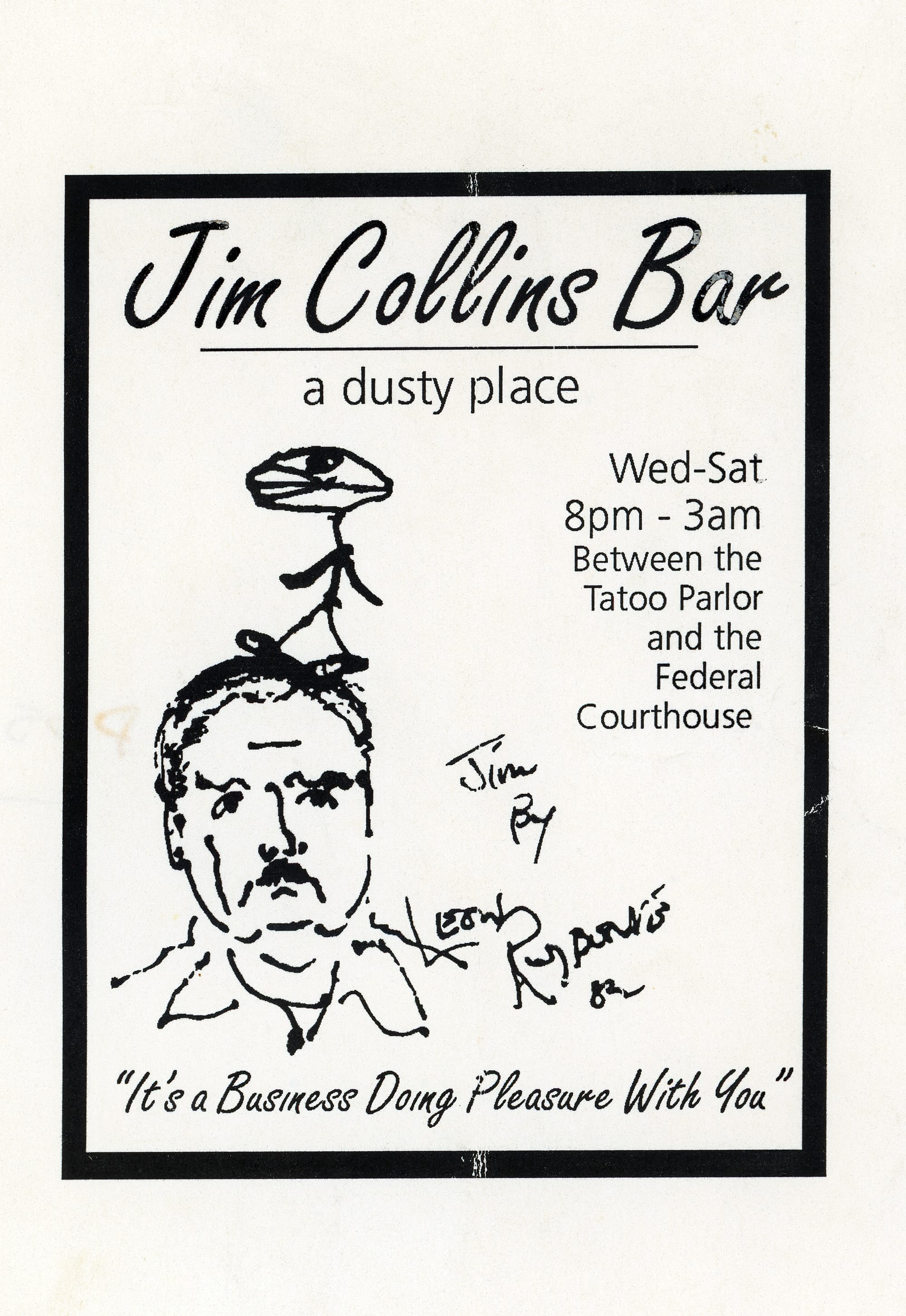
That combination of fatherly protection and an innate creative spirit led Jim Collins to be a sort of patriarch to musicians far and wide, who valued his bar’s open-mindedness, lack of pretension – and of course, its cheap beer.
“The role Jim played in nurturing and attracting people made his place very influential in the Savannah music scene – and by extension, many of the people who went to his bar also became influential,” Kohler says.
The great Leon Redbone was an admirer of Jim Collins, and a quasi-regular visitor. Members of R.E.M. enjoyed Jim’s as well, before they blew up and became household names.
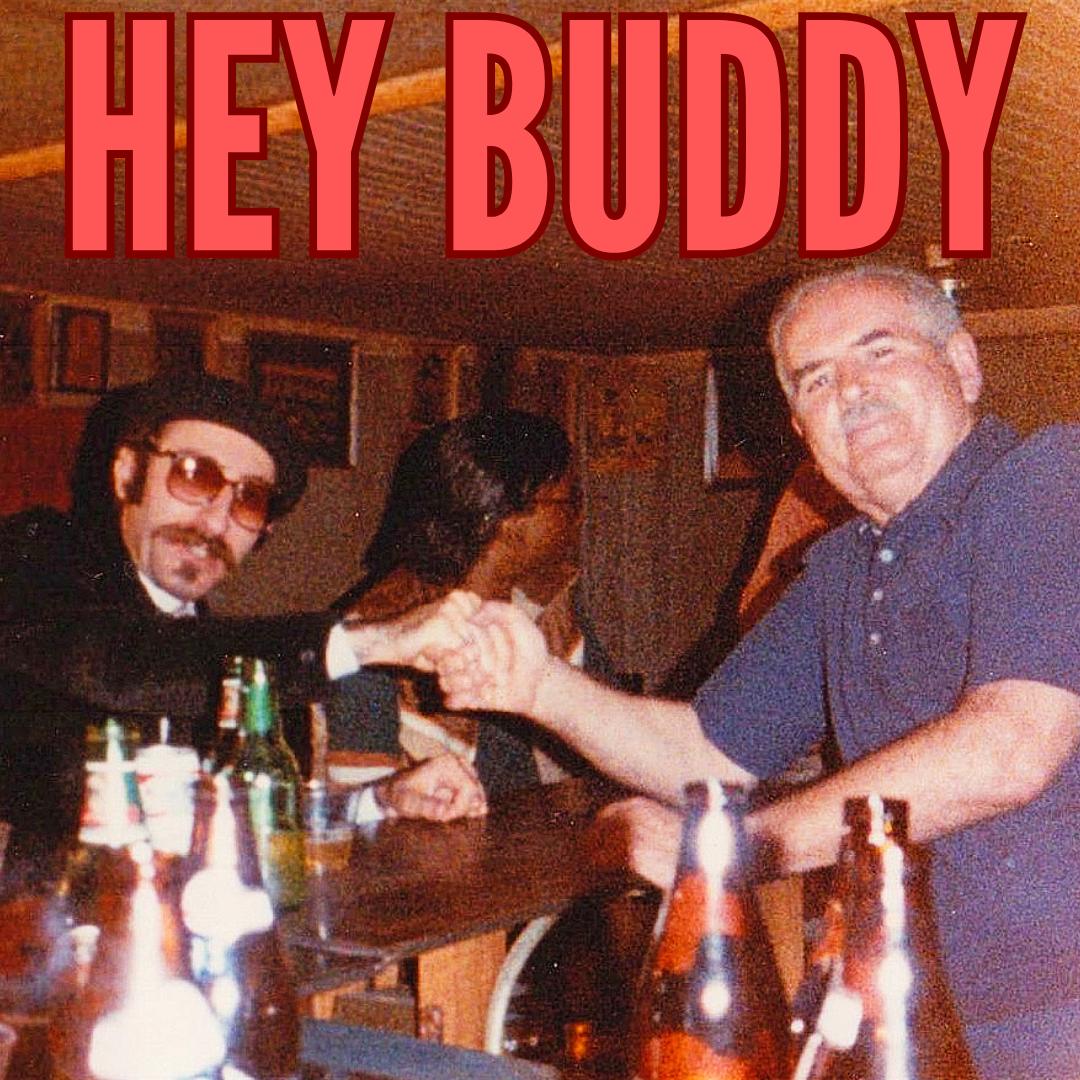
Sometimes, when the mood struck, and especially if musicians were hanging around, Jim Collins would see who wanted to stay after last call.
Then he’d lock the door and say, “You’re in my living room now.”
That’s often when musical instruments were pulled out, or down from the wall where they were hanging. And the party would continue until sunrise.
“You knew it was going to be a very special night when Jim would pull out his metal dobro,” Kohler remembers. “There aren’t many like that, and musicians would just go nuts when Jim pulled it out to play.”
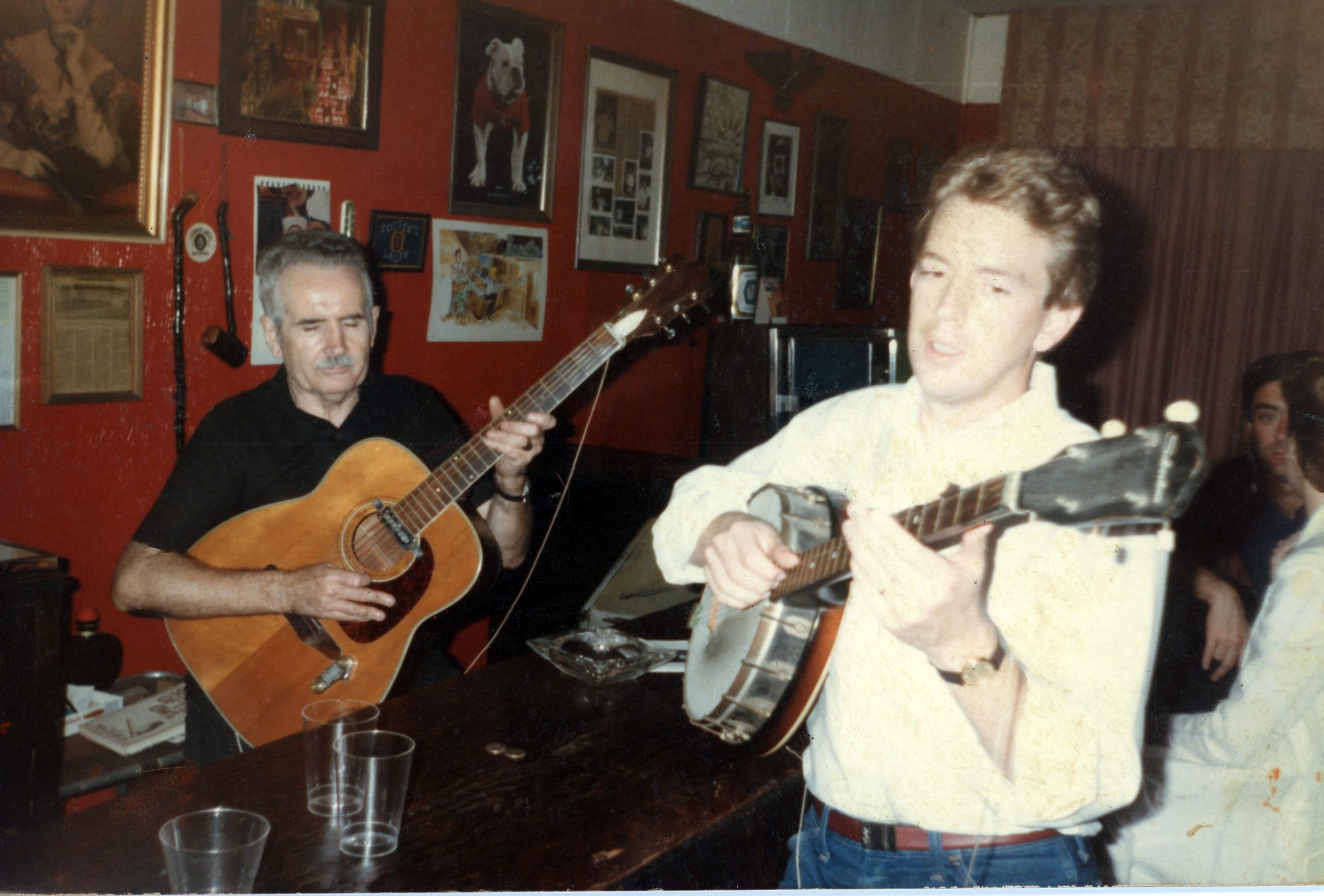
While Jim Collins was notorious for frequently kicking customers out on the slightest whim, “it was just a three-day suspension,” Kohler laughs. “There is a running contest to see who has been kicked out of Jim Collins Bar the most times.”
That said, part of the reason Collins was so tough on people was to make sure everyone knew they couldn’t get away with bad behavior.
“The thing is, part of the reason Jim did things like that was to make sure his bar would be safe for everyone,” Kohler says. “Women especially, felt comfortable coming into his bar alone, knowing that Jim wouldn’t tolerate anyone harassing them.”
In a sadly less enlightened time when there was still much bigotry in Savannah, Kohler and others remember that Jim Collins also didn’t tolerate any kind of racism or prejudice.
“The unusually diverse crowd of regulars the bar drew was a microcosm of the more open-minded and gregarious elements of Savannah in the 1960s through the very early 2000s, and the owner’s very specific notions of how he wanted his place to operate played a large role in determining what sort of people felt comfortable hanging out there,” says Jim Reed.
Simply put, Reed says, “the atmosphere tended to instantly weed out almost anyone who had a lick of pretension or bigotry in their body. This made it a dark, dusty, old-fashioned home away from home for misfits and oddballs of all stripes.”
Upon Jim Collins’s death in 1989, his widow and Kathleen’s mother Lola Collins ran the bar – with a lot of help from her late husband’s friends.
That’s when the Jim Collins Alumni Association evolved.
“We all began taking volunteer shifts bartending, to make sure Lola didn’t have to do it all by herself, and to make sure the place could stay open,” Kohler says. “It became a real communal effort.”
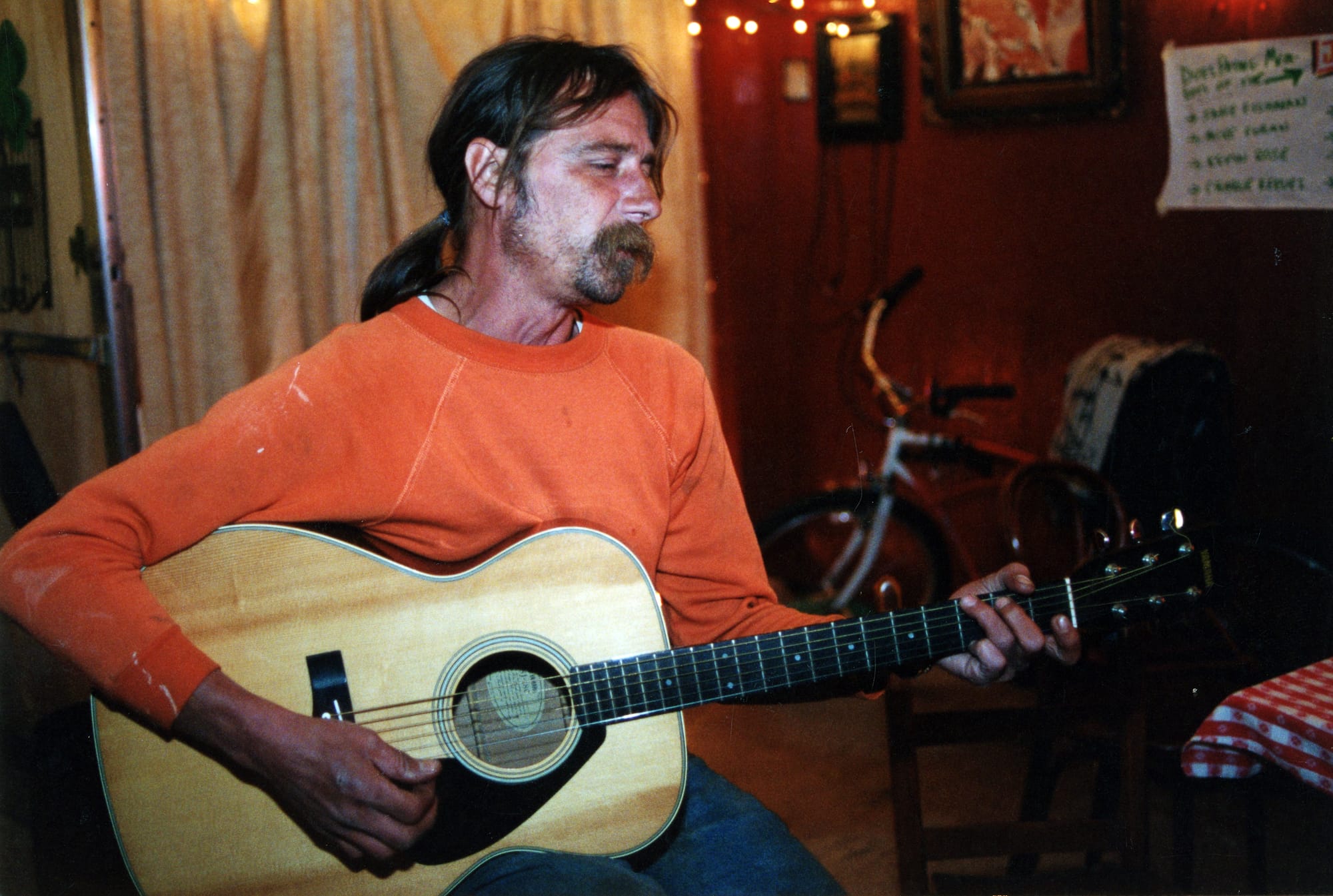
At the center of that communal effort, Kohler says, was the late Joe Holmen, who sadly passed away in 2020.
“Joe was the real stalwart,” Kohler remembers of Holmen, who in addition to being a very talented local musician himself was very similar in spirit and attitude to Jim Collins.
While the Alumni Association kept the bar open another decade, Lola eventually closed it for good in 2001. She passed away in 2016 aged 97.
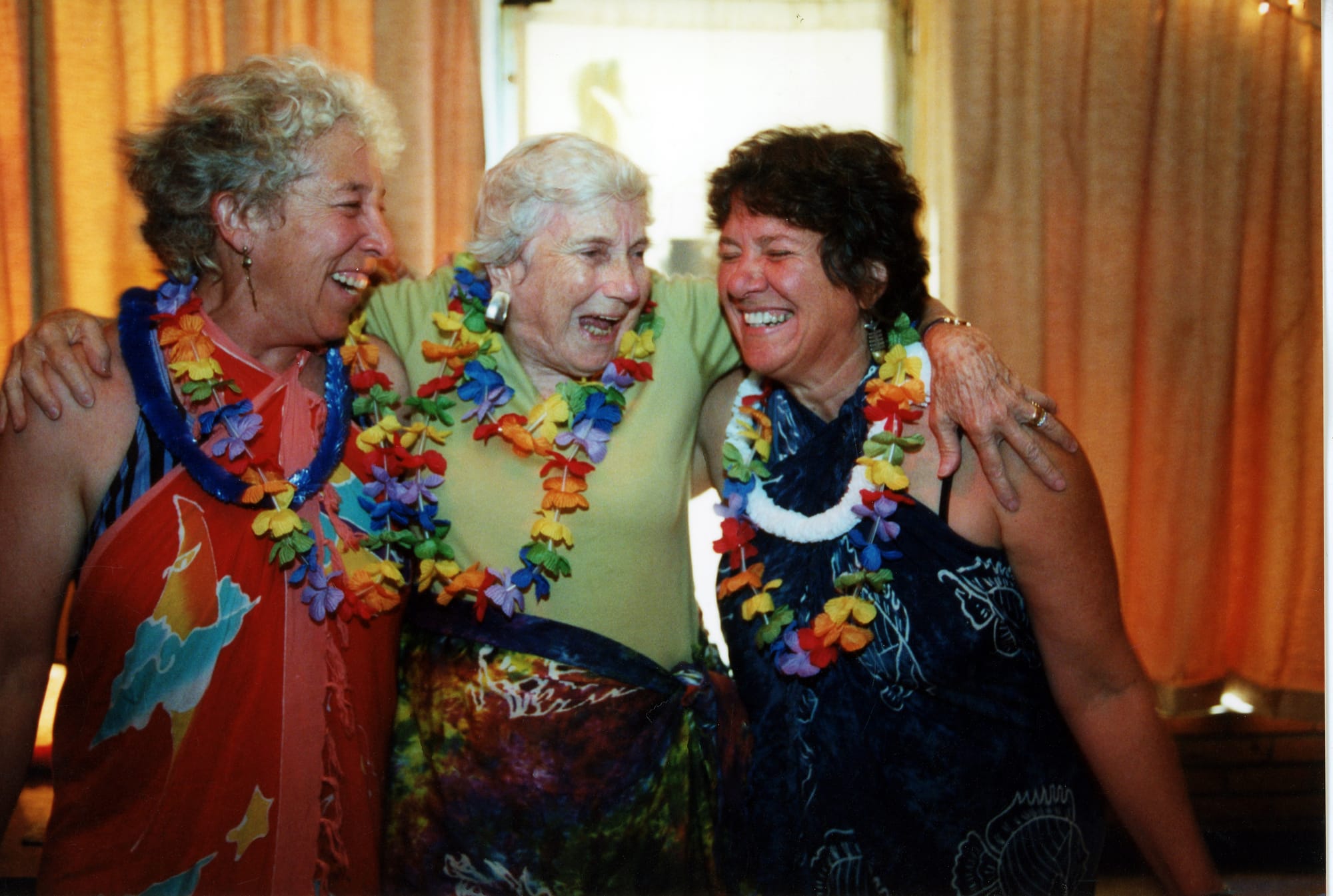
The celebration this Saturday will feature good fellowship, good stories, maybe a trivia contest, and definitely some great tunes played on vinyl, such as the ones played on Jim’s famous jukebox.
“It’s a very sad thing that a dusty, divey watering hole like Jim Collins Bar will likely never be able to open and survive again anywhere remotely near downtown,” Jim Reed muses.
“But those of us who remember how special and inviting and unique that place is want to not only track down and gather together other folks who have a similar soft spot in their heart for Jim’s, but to also use that opportunity to share our stories of that time and place with other younger, inquisitive locals who were never able to experience the place firsthand.”
The choice of The Sentient Bean is quite deliberate, the event organizers say.
“The Bean is not a vanilla box like so many downtown places these days,” Kathleen Collins says. “It exudes the same independent spirit that Jim Collins Bar did. It is not here to ride the ever-changing fads of many of today’s restaurants. It is what it is, like it or leave it ― and you can’t get any more like Jim Collins than that!”
The Bean, of course, also has beer and wine available, just like Jim Collins did.
After the birthday party, folks hope to continue the shenanigans around the corner at the American Legion bar.
As Kathleen says:
“If you’d like to know how downtown Savannah was, in its bohemian heyday, this is the event to attend. We won’t ever see the likes of this era, its richness, its realness, again.”
Jim Collins' 100th Birthday Party & Jim Collins Bar Alumni Reunion Celebration happens Sat. June 7 at 7:30 p.m. at the Sentient Bean Coffeehouse on Park Avenue overlooking Forsyth Park.
